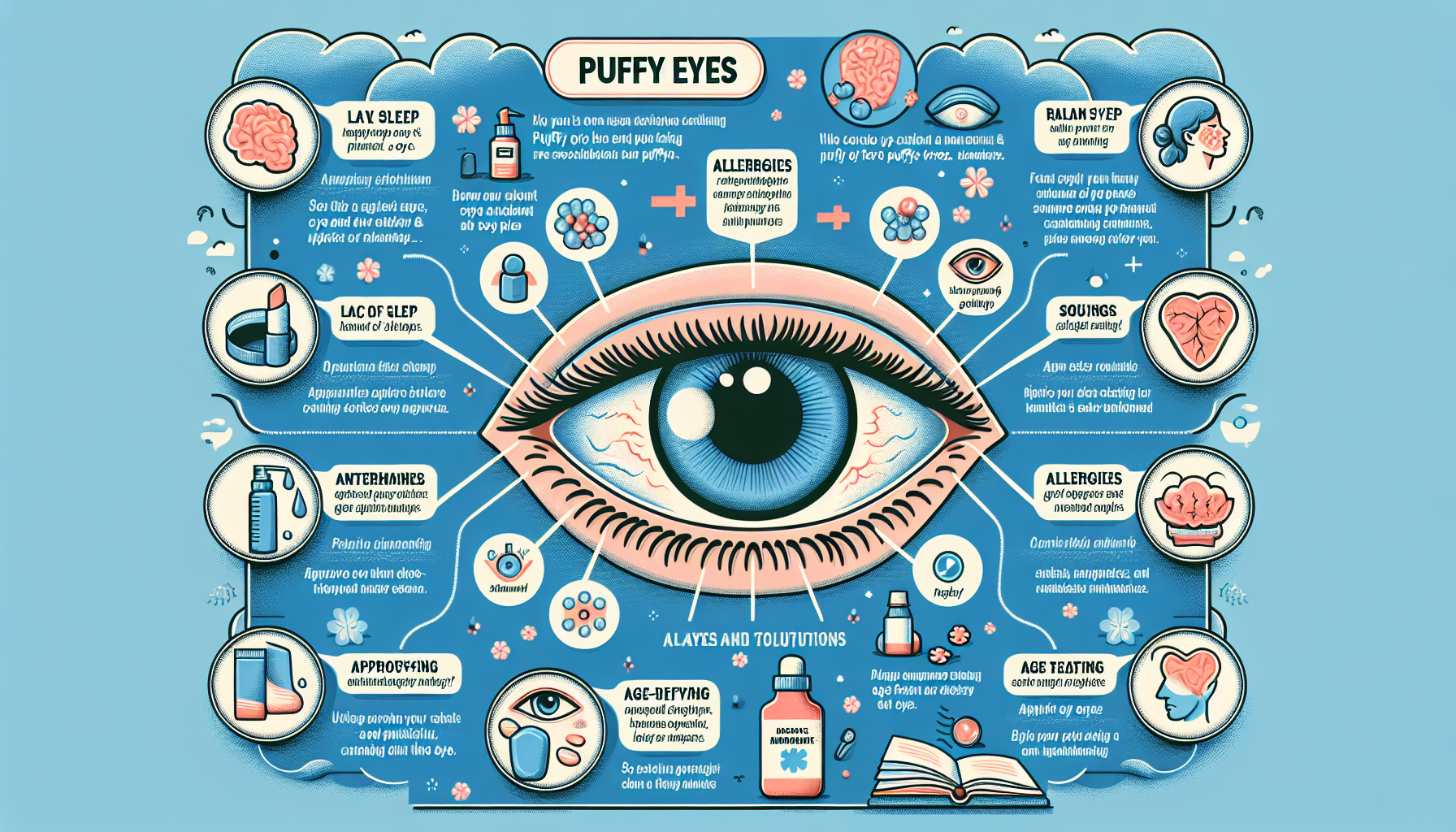Waking Up with Puffy Eyes? Here’s What Could Be Causing It and How to Tackle It!
Have you ever woken up in the morning, only to find that your eyes are puffy and your eyelids feel heavy? Or maybe you've experienced a moment of intense emotion followed by tears, leaving your eyes feeling swollen and sensitive? If you’ve nodded along, you’re not alone. Our eyes are incredibly delicate, and they can swell for numerous reasons more often than we might think.
While trying to solve the problem of puffy eyes can be effective in the short term, repeating patterns of swelling can signal underlying health issues. Let’s dive into some common causes of those pesky puffy eyes you might be facing and how to manage them effectively.
1. Lack of Sleep: A Hidden Culprit
Have you ever been baffled by the sight of swollen eyes even after a seemingly good night’s sleep? According to dermatologists like Dr. Anar Mikailov, co-founder of Skintensive, sleep deprivation can lead to hormonal changes that cause fluid retention. “Sleep reboot allows your body to remove toxins and waste,” says Mikailov. When this process is disrupted, the result can be unsightly puffiness. For some real-life context, many people have found that after a series of late nights—whether due to work or personal commitments—puffiness becomes a persistent issue.
2. Sleep Position Matters
Interestingly, how you sleep can significantly influence your morning look. If you’re like many, you might curl up with your face buried in your pillow. Dr. Mikailov notes that this position can cause fluid to accumulate around your eyes. “Sleeping on your stomach can cause fluids to pool in your facial tissues,” he explains. Instead, consider propping yourself up with an extra pillow to encourage fluid drainage.
3. Hormonal Changes and Their Impact
For those who menstruate, fluctuations in progesterone levels before a cycle can lead to temporary swelling. Mikailov points out that higher levels of this hormone cause the body to hold onto excess fluid, which often manifests around the delicate eye area. Many have reported feeling a bit “puffier” during this time; understanding this connection can help in managing expectations and self-care during those particular days.
4. Allergies: An Advocate for Awareness
If you notice swollen eyes accompanied by itching, it might be time to consider seasonal allergies. Mysterious blooms may cause a rise in histamines, leading to inflammation and swelling around the eyes. This is especially common during spring, when flowers blossom and pollen becomes rampant. One example is how folks suffer from “hay fever,” which can wreak havoc on appearance and comfort alike.
5. Hydration Levels vs. Dehydration
Surprisingly, not drinking enough water can lead your body to retain the little moisture it has, causing puffiness. “When dehydrated, your body goes into survival mode and holds onto excess water, which can contribute to swelling,” explains Mikailov. Take a page from the health book and stay hydrated to prevent this cycle.
6. The Emotional Ripple Effect
Crying might feel cathartic, but it can leave you with swollen eyes due to fluid buildup in the surrounding tissues. Dr. Mikailov states, “When crying, tears can be reabsorbed by the nearby tissues, leading to swelling.” Plus, the act of wiping away tears can irritate the skin around your eyes, compounding the problem. In moments of high emotion—think breakups or even weddings—grabbing a cool cloth for relief can be a game changer!
In conclusion, while puffy eyes can often seem like an annoying inconvenience, they might hint at important aspects of your health and routine. By acknowledging the various factors that contribute to this condition—from sleep patterns and hormonal fluctuations to hydration levels—you can tackle the problem head-on and enhance your morning fresh-faced appearance. After all, who wouldn’t want to greet the day with confidence? So keep these tips in mind, and say goodbye to puffiness!
